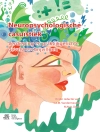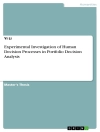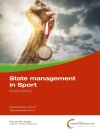The Story about a Fish
Imagine a fish swimming in a little aquarium. Take the fish out, lay it on the floor. Whereas the fish gasps for air, as much as it jumps about, you think „how funny the fish behaves“. The fish jumps even higher, gasps even stronger. You say: „There is something wrong with him“. The fish moves still more obstrusive! You decide: „He is disturbed and needs therapy“.
All the Fish Needs is WATER!
We tend to interpret very quickly, build construals, or diagnoses. Methods, measurements, or interventions often follow next, which neither helps us nor the child.
In the case of the child we could conclude, that the child only needs attachment, e.g. non-verbal share of kindness, and a verbal message like „you are alright“, „You are an important human being“.
This book does not make a claim to convey anything new, but rather different. Along the lines of the motto: „If you want anything different, do something different!“
My attempt is to give you an understanding of another paedagogy, to allow your point of view or perspective to broaden. Stand on a chair, take a look at the aquarium. Sit down on the floor, how does the aquarium look like now? Certainly, you will see different things. Maybe, the colour changes, your perception of the amount of water, the number of fish, and others.
The most important challenge you face as a relatively more seasoned human being, or pedagogue, and educator, is to empower the „child“ to lead it’s life independently. It is exactely this task, simply expressed, or described, which acquires not only paedagogic methods, but, to practise them, moreover preconditions, reaching far beyond one own’s horizon.
The assumption, that just knowing what, e.g., autonomy means, is sufficient to behave accordingly, frustrates already generations of paedagogues. Because of this, I will describe the theoretical foundation, the inner attitude – assumptions, dogmas – as well as the consequent actions, methods, resp., interventions. I could explain to you, how to ride a bike works; but, unfortunately, this does not enable you to ride a bike. You have to mount that bike and start to ride. You could support this with various approaches; someone helps keeping the bike in balance; you could use training wheels, etc. Crucial to the successful outcome is, whether the theoretical description, the perception of how others ride, the tools/methods, if nothing else my intrinsic attitude („riding a bike is great!“, or, „I will never learn it!“) support it. To motivate you with this book, I will urge you to ride tandem together with me. You will cruise a landscape, in which children als well as paedagoges live, who „show problems“, and also who „cause problems“. As the case arises, you will remain a little to witness the process of becoming independent, as well as the communication of what makes a human important. By means of this, I nourish the hope, that you indeed want something different and start to do something different!
Steven Pennings
A Fish Needs Water [PDF ebook]
How to let Kids go off the Hook
A Fish Needs Water [PDF ebook]
How to let Kids go off the Hook
Kup ten ebook, a 1 kolejny otrzymasz GRATIS!
Język Angielski ● Format PDF ● Strony 73 ● ISBN 9783923884063 ● Rozmiar pliku 43.0 MB ● Wydawca Pennings, Steven ● Kraj DE ● Opublikowany 2013 ● Do pobrania 24 miesięcy ● Waluta EUR ● ID 2857515 ● Ochrona przed kopiowaniem bez












